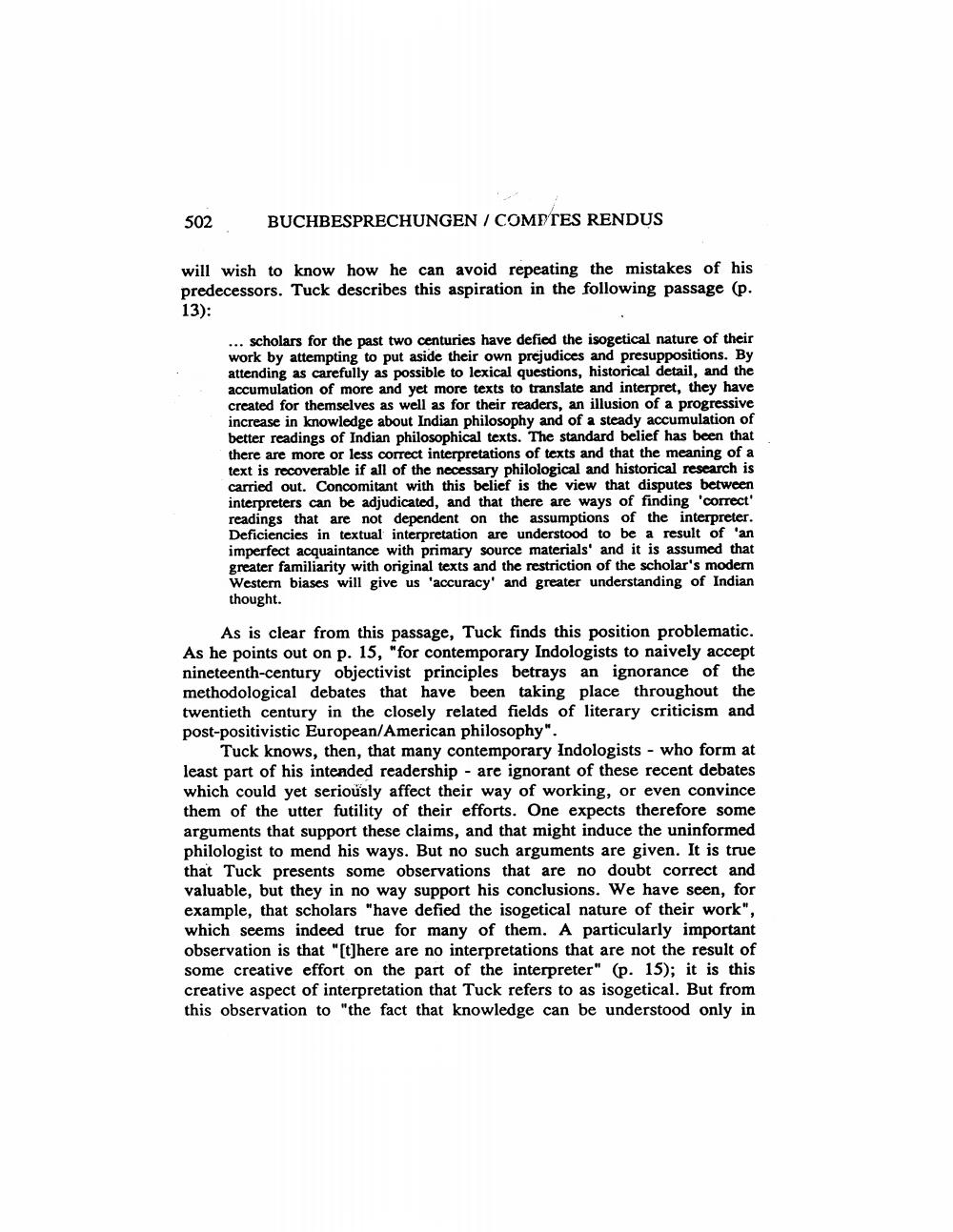________________
502
BUCHBESPRECHUNGEN / COMPTES RENDUS
will wish to know how he can avoid repeating the mistakes of his predecessors. Tuck describes this aspiration in the following passage (p. 13):
... scholars for the past two centuries have defied the isogetical nature of their work by attempting to put aside their own prejudices and presuppositions. By attending as carefully as possible to lexical questions, historical detail, and the accumulation of more and yet more texts to translate and interpret, they have created for themselves as well as for their readers, an illusion of a progressive increase in knowledge about Indian philosophy and of a steady accumulation of better readings of Indian philosophical texts. The standard belief has been that there are more or less correct interpretations of texts and that the meaning of a text is recoverable if all of the necessary philological and historical research is carried out. Concomitant with this belief is the view that disputes between interpreters can be adjudicated, and that there are ways of finding 'correct' readings that are not dependent on the assumptions of the interpreter. Deficiencies in textual interpretation are understood to be a result of 'an imperfect acquaintance with primary source materials' and it is assumed that greater familiarity with original texts and the restriction of the scholar's modern Western biases will give us 'accuracy' and greater understanding of Indian thought.
As is clear from this passage, Tuck finds this position problematic. As he points out on p. 15, "for contemporary Indologists to naively accept nineteenth-century objectivist principles betrays an ignorance of the methodological debates that have been taking place throughout the twentieth century in the closely related fields of literary criticism and post-positivistic European/American philosophy".
Tuck knows, then, that many contemporary Indologists - who form at least part of his intended readership - are ignorant of these recent debates which could yet seriously affect their way of working, or even convince them of the utter futility of their efforts. One expects therefore some arguments that support these claims, and that might induce the uninformed philologist to mend his ways. But no such arguments are given. It is true that Tuck presents some observations that are no doubt correct and valuable, but they in no way support his conclusions. We have seen, for example, that scholars "have defied the isogetical nature of their work", which seems indeed true for many of them. A particularly important observation is that "[t]here are no interpretations that are not the result of some creative effort on the part of the interpreter" (p. 15); it is this creative aspect of interpretation that Tuck refers to as isogetical. But from this observation to "the fact that knowledge can be understood only in




